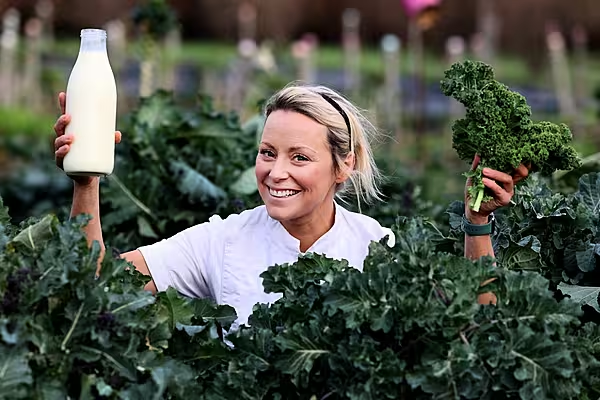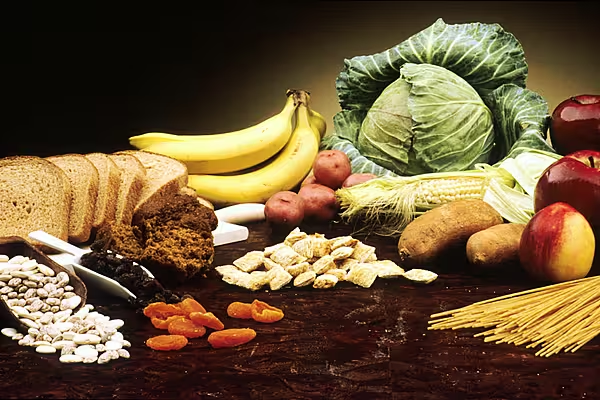Some 42% of consumers worldwide plan to substitute meat for plant-based food in the coming ten years. In Ireland, while the plant-based category has witnessed significant NPD growth and there are more items on retailers’ shelves, sales are now stabilising. Maev Martin reports.
Meat-free eating is at an all-time high, with more households than ever before buying into the category.
This is also reflected in the increasing popularity of Veganuary, which saw its highest ever number of pledges in 2022, presenting retailers with an even bigger platform to maximise their meat-free sales.
Shoppers have never been more aware of their environmental impact and how their everyday choices can have a positive effect.
This has created a sustained interest in meat-free diets, whether that is vegetarian, vegan or flexitarian.
Retailers see the opportunity in plant-based and have been giving it more space in-store.
The movement to mainstream is happening, and over the next few years it is likely that shopping plant-based will be a commonplace activity, with brand recognition driving category traffic.
The market for vegan food in Ireland is growing, but producers of vegan food and drink products aren’t just targeting vegans.
Rather than focusing on promoting veganism, they want to bring more consumers into the plant-based category.
Paying A Premium
It appears that many shoppers are prepared to pay a premium for plant-based food and drink because of the benefits to their health, and the sustainability aspects.
However, as volumes increase, price will reduce over time, making vegan products, and the category, more accessible.
In January 2022, Lidl Ireland extended its vegan offering to include a wide range of plant-based products under its own label, Vemondo.
The new range includes plant-based pizzas, burgers, falafels, and other everyday treats for vegans and those looking to make a change to their diet.
With more than half (59%) of Irish vegans feeling that product affordability is a challenge for their dietary lifestyle, Lidl noted that it had ‘come to the aid of vegans across the country with its wide variety of inexpensive, high-quality plant-based foods.’
In addition to these new products, Irish supplier Loughnane’s vegan Plant to Plate burgers were also taken in under the Vemondo brand umbrella.
Like the other major retailers in Ireland, Lidl also offers an extensive vegan range, which includes brands such as Quorn, Gosh!, Strong Roots and Alpro.
Apart from price, taste has been a barrier to entry for many consumers.
While there is an appetite for vegan products, until recent years, a lot of the plant-based food hitting supermarket shelves hasn’t tasted great.
We are now seeing the emergence of tasty food that just happens to be plant-based.
When consumers aren’t compromising on taste and quality, that is when the category will really take off.
The nutritional aspect has traditionally been the third big barrier to entry, as there is a concern about the nutritional quality of plant-based meats.
Plant-Based Diets On The Rise
However, it appears that these traditional barriers to entry are being addressed as a recent study found that 42% of consumers worldwide plan to substitute meat for plant-based food in the coming ten years.
The Grains of Truth study was produced by global insights and advisory consultancy GlobeScan and EAT, and it surveyed 30,000 consumers across 31 markets worldwide about health, sustainability and food security.
According to the report, 51% of respondents feel insecure about the current food supply due to Covid-19, war and climate change.
Kenya (77%), Brazil (73%) and Colombia (72%) showed the highest levels of concern about food insecurity, whereas India (19%), Saudi Arabia (33%) and Egypt (35%) reported the lowest levels.
Elsewhere, 60% of those surveyed said they are worried about food shortages, and 92% say the price of their shopping basket has risen in the last three months.
Colombia, Peru, Kenya, Mexico, Brazil, Argentina and South Africa are the countries that are most concerned about food shortages, while China (16%), Hong Kong (24%) and South Korea (28%) are the least worried.
Some 60% of consumers said that they eat healthy food most of the time, and 22% eat vegetarian or vegan food, in comparison to 17% in 2019.
Vietnam (38%) is the most interested country in eating plant-based food, with Thailand (37%) coming second and Brazil (22%) in third place.
The report found that 89% of consumers value environmentally friendly and responsible food, and 64% say they are willing to pay more for it.
"This timely research provides insight into how rising food prices, Russia's illegal invasion of Ukraine, and climate change have exacerbated consumer fears about food insecurity,” said Chris Coulter, GlobeScan’s CEO.
“Nevertheless, there appears to be a hopeful shift to more healthy and sustainable eating among consumers.
"Plant-based diets are on the rise in all regions of the world, and consumers are becoming increasingly aware of the link between climate change and food choices.”
NielsenIQ’s European Consumer Insights Conscious Eaters Study 2021 reveals that more consumers are interested in meat reduction (approximately one third of households).
However, a much lower percentage follow a dedicated vegan (3%) or vegetarian (5%) diet specifically.
“Those who try to limit the amount of meat they consume are a good potential target group for plant-based market offerings, even if they are occasional buyers,” says Ruth Lloyd Evans, senior business insights manager, NielsenIQ.
Category Worth €35 Million Per Annum
In Ireland, while inflation and the increased cost of living are top of mind for the majority of consumers, healthy and sustainable consumption options are still relevant.
In a recent survey by NielsenIQ, 18.6% of consumers (up from 15% in their April 2022 pulse) responded that meat free/vegetarian/vegan was important to them when choosing food to buy.
This over indexed with the 25 to 34 year old age group, at 26.2%.
Total vegetarian and vegan fresh and frozen food is worth approximately €35 million per annum in the total Ireland retail grocery market (total multiples, convenience, including Dunnes and discounters).
This includes meat substitutes, ready meals, tofu/tempeh, falafel etc.
While this category has grown in recent years, value and unit sales are down in the latest 12 weeks by 11% and 18% respectively.
“There has been significant development of the category in terms of new product development and increased presence of items in retailers, however, sales are now annualising and stabilising,” says Lloyd Evans.
“More natural options such as tofu/tempeh are faring better, with a one per cent value sales decline in the latest 12 weeks. Retailer own label meat-free ready meal options are also experiencing growth of approximately 6%.”
Milk and Yogurt
According to NielsenIQ, the plant-based milk and yogurt category is worth almost €180 million per annum in the total Ireland retail grocery market (total multiples, convenience, including Dunnes and discounters).
In the latest 12 weeks, although value sales are up by 1.5% on last year, consumption has decreased, indicated by unit decline of 6.1%. Price inflation of 8% is driving value growth.
Ambient plant-based milk value sales are up by 10.5% in the latest 12 weeks, while growth in chilled plant-based milks is lagging behind, down by 5.1%.
Demand for ambient plant-based milks is higher, with oat and soya-based milks being the most popular.
Sales of nut-based milks are experiencing a decline. Increased range and distribution have contributed to the growth in oat milks.
Cheese And Butter
The annual sales contribution from plant-based cheese and non-dairy butter and spread alternatives is small, with annual sales value of approximately €1.7 million and €1.2 million in the total Ireland retail grocery market (total multiples, convenience, including Dunnes and discounters).
However, value sales growth in plant-based cheese is declining at a rapid pace of 16% in the latest 12 weeks.
“While there are some great products in the market, plant-based cheese alternatives are challenged to replicate taste and texture,” says Lloyd Evans.
“Those that do will be sure to succeed in this space.”
In January of this year, Aldi UK introduced its first private-label vegan cheese SKU under the Plant Menu label.
The new Plant Menu 200-gram Mature Cheddar Block is made with coconut oil.
Priced at £1.39, it is up to £1.21 cheaper than vegan cheese offered by Tesco and Sainsbury’s, the retailer noted.
The new cheese is also available in a Grated Cheddar Pack version, priced at £1.39 for a 150-gram pack.
Aldi has been expanding its vegan offering and has added several products to its range including, among others, a range of sandwiches with vegan tuna alternatives and vegan cosmetics under its Biocura Nature private-label brand.
Sources:
NielsenIQ ROI Consumer Survey Oct 2022 (n=500), April 2022 (n=536).
NielsenIQ European Consumer Insights Conscious Eaters Study 2021.
NielsenIQ Retailer Data to 6 November 2022, market sizes include Dunnes & Discounters, growth rates pertain to Total Scantrack only (Total Multiples & Convenience Ex Dunnes & Discounters).
© 2022 Checkout – your source for the latest Irish retail news. Article by Maev Martin.









